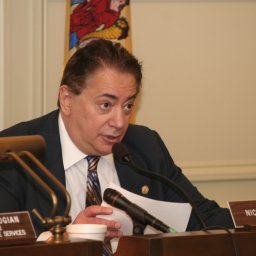Tax Refunds Would Go Directly To DEP For Remediation
TRENTON – Legislation sponsored by Senate President Steve Sweeney that would ensure the clean up of environmentally contaminated sites in New Jersey cleared the Senate Environment and Energy Committee today. The Senate President announced his intention to sponsor the legislation last month in front of the shuttered Sunoco Coastal Eagle Point Refinery in West Deptford.
The bill, S-1460, would require that any property tax refund awarded to an industrial property that has been totally or partially decommissioned and is subject to federal or state orders for remediation would be given directly to the state Department of Environmental Protection. The money would then be used for environmental cleanup of the location. Any money leftover after the cleanup is complete would then be returned to the owner of the property. The bill would also authorize a municipality to assess an annual charge on the owner of the contaminated property to cover remediation costs.
“For too long, New Jersey was seen as a toxic dumping ground by corporations who ceased operations, went bankrupt or otherwise abandoned New Jersey,” said Sweeney. “We have tried with some success to force these companies to clean up the mess they left, but it is no where near enough. This legislation will hold such corporations, like Sunoco, accountable for their environmental responsibilities.”
In West Deptford, Sunoco has operated a major refinery, employing hundreds of workers. In 2009, the company announced plans to idle its refining operation and laid off most of its 500 workers. After recent settlement of Sunoco’s tax appeals, West Deptford could owe the company more than $20 million in overpaid taxes. Gloucester County would be responsible for one-third of the amount. West Deptford would have to bond to be able to make the payment.
Remediation work at the Sunoco refinery has been ongoing. There are more than 350 monitoring wells for groundwater contamination and other wells to prevent off-site migration of the contamination. The company is also operating 18 remediation wells at the site.
The bill now heads to the Senate Budget and Appropriations Committee.



